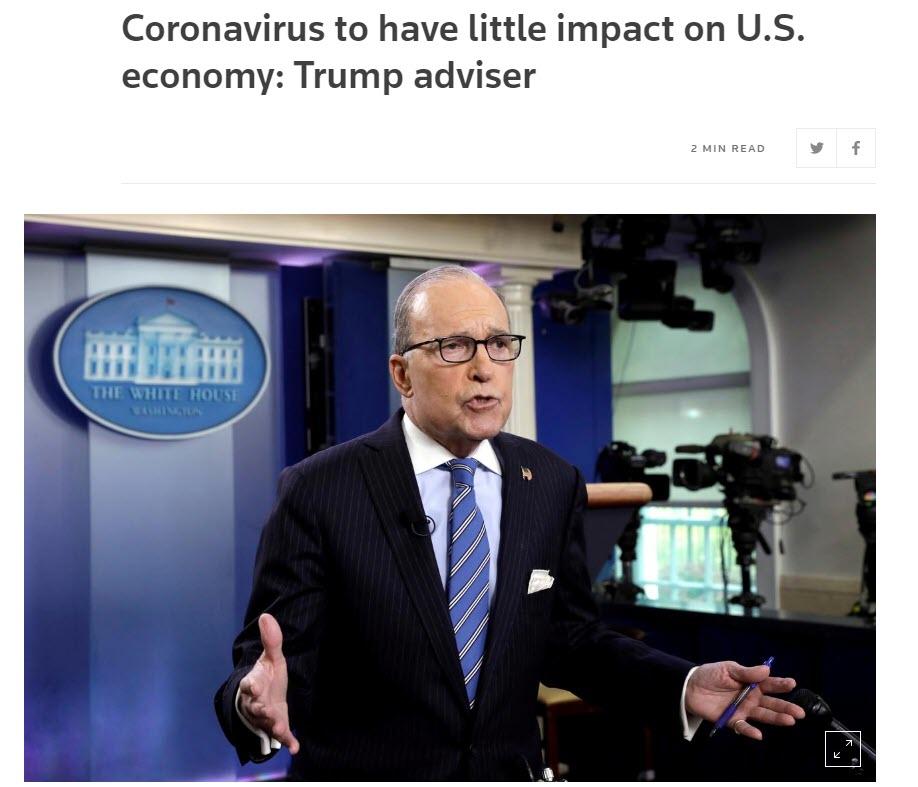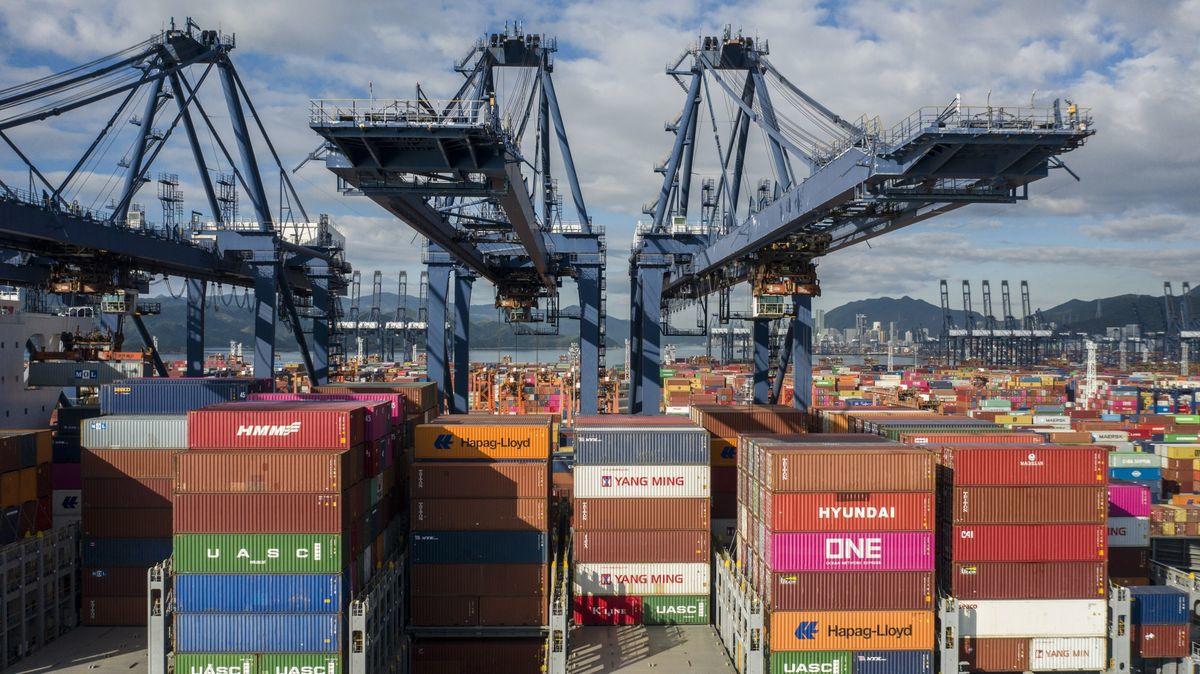"We see no material impact on our economy," Larry Kudlow, director of the National Economic Council Director, told Fox Business Network.

Almost 75% of companies have reported supply chain disruptions as a result of coronavirus disease, or COVID-19, according to a new survey released by the Institute for Supply Management (ISM).

Additionally, the first-round results of the survey focused on the effects of COVID-19 on business and supply chains, show that more than 80% of companies expect to experience some impact because of COVID-19 disruptions.
"The story the data tells is that companies are faced with a lengthy recovery to normal operations in the wake of the virus outbreak," said Thomas Derry, CEO of ISM.
"For a majority of U.S. businesses, lead times have doubled, and that shortage is compounded by the shortage of air and ocean freight options to move product to the United States — even if they can get orders filled."
Primary reported supply chain impacts include the following:
57 percent noted longer lead times for tier-1 China-sourced components, with average lead times more than doubling compared to the end of 2019.
Manufacturers in China report operating at 50 percent capacity with 56 percent of normal staff.
More than 44 percent of respondents do not have a plan in place to address supply disruption from China. Of those, a majority (23 percent of respondents) report current disruptions.
Of the companies expecting supply chain impacts, the severity anticipated increases after the first quarter of 2020.
Six in 10 (62%) respondents are experiencing delays in receiving orders from China.
More than half (53%) are having difficulty getting supply chain information from China.
Nearly one-half are experiencing delays moving goods within China (48%).
Almost one-half (46%) report delays loading goods at Chinese ports
"We're seeing that organizations who diversified their supplier base after experiencing tariff impacts, are potentially more equipped to address the effects of COVID-19 on their supply chains," said Derry.
More than 60 percent of companies that ordinarily travel to China have no plans to do so over the next six months. Additionally, nearly one-half (47%) note travel to other international areas is subject to extra scrutiny or limitations, with the most mentioned areas being Korea, Italy, Japan, broadly Europe, Hong Kong and Singapore.
Commenti
Posta un commento